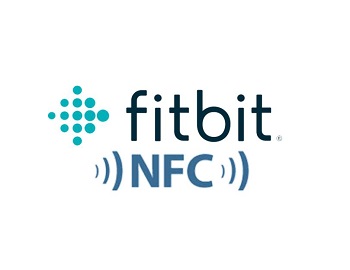New Fitbit band could function as a mobile wallet.
Major developers of simple yet popular fitness trackers are constantly looking for new ways to make their products stand out from the competition. Last week, one of these top developers, Fitbit Inc., revealed that it has purchased wearable payment technology assets from Coin, a Silicon Valley startup that manufactures devices which use near-field communication (NFC) technology, reported Reuters.
Fitbit is not the first maker of wearables to offer a mobile payment option via its device.
Although Fitbit is the leader of the wearable devices market, it isn’t the first developer of this tech to implement a mobile payment solution into its product. Jawbone, its main competitor, has already partnered with American Express Co, enabling Jawbone users to pay via its premium fitness band UP4.
 The new deal that Fitbit has made with Coin will help it to remain on top of its game and enter the NFC technology market. This is an important move for the company because NFC continues to gain in popularity with retailers and users. Currently, NFC has been prominently featured in Apple Watch and other mobile devices as well as in well-known payment services including Apple Pay, Google Wallet and Samsung Pay.
The new deal that Fitbit has made with Coin will help it to remain on top of its game and enter the NFC technology market. This is an important move for the company because NFC continues to gain in popularity with retailers and users. Currently, NFC has been prominently featured in Apple Watch and other mobile devices as well as in well-known payment services including Apple Pay, Google Wallet and Samsung Pay.
Fitbit’s wearable payment technology plan is being reserved for future devices.
While Fitbit has announced the acquisition of Coin’s assets, the dominating wearables maker does not have any plans to incorporate the NFC tech into any of its products this year. However, the acquisition does give the company the advantage of developing an impressive NFC payments solution that is likely to be implemented into its future devices.
James Park, CEO and co-founder of Fitbit, said in a statement that the company is “focused on making wearable devices that motivate people to reach their health and fitness goals, and that also make their lives easier with the smart features they need most,” adding that “Coin has been one of the key innovators in advanced payment solutions.”
Park said that adding the wearable payment technology into their products will further Fitbit’s strategy of making its products “an indispensible part of people’s lives.”
A new report has indicated that certain wearables and the apps needed to use them are posing a privacy risk.
Citizen Lab, in partnership with Open Effect have now released a report that has suggested that the mobile security being provided by several popular fitness trackers are actually vulnerable to potential tampering, surveillance and tracking over the long term.
These devices are quite commonplace and are used to allow a person to monitor his or her physical activity.
The report was the result of an examination of eight different fitness trackers and the mobile apps that are needed to use them. It was conducted by Citizen Lab from the University of Toronto, and the Open Effect not-for-profit research group. They looked into these applications and wearables to determine the level of mobile security and privacy they were able to provide. The trackers the researchers examined included: the Fitbit Charge HR, Jawbone Up 2, Garmin Vivosmart, Basis Peak, Mio Fuse, Xiaomi Mi Band, Withings Pulse O2 and even the Apple Watch.
The researchers looked at a range of different mobile security measures for every device they considered.
 The factors included those pertaining to the collection and storage of data, as well as their transmission practices. What they determined was that every device, aside from the Apple Watch, persistently emitted uniqueIDs by way of their embedded Bluetooth radios. Those identifications could potentially expose the users of the wearables to location tracking over the long-term, even at times in which the device was not paired to a smartphone or tablet.
The factors included those pertaining to the collection and storage of data, as well as their transmission practices. What they determined was that every device, aside from the Apple Watch, persistently emitted uniqueIDs by way of their embedded Bluetooth radios. Those identifications could potentially expose the users of the wearables to location tracking over the long-term, even at times in which the device was not paired to a smartphone or tablet.
The report said the Apple Watch was the only one among the wearables that actually randomized its Bluetooth ID, causing it to be impossible to track that smartwatch over the long-term.
The authors of the report also pointed out that the Jawbone and Withings app was vulnerable to being exploited in order to crate fraudulent fitness records. The reason this poses a mobile security risk due to the chance that the data collected by personal fitness wearables could be used in court cases, health insurance programs and for other official reasons. Therefore, if that data has been falsified, it could create a highly undesirable risk for the users.
 The new deal that Fitbit has made with Coin will help it to remain on top of its game and enter the NFC technology market. This is an important move for the company because NFC continues to gain in popularity with retailers and users. Currently, NFC has been prominently featured in Apple Watch and other mobile devices as well as in well-known payment services including Apple Pay, Google Wallet and Samsung Pay.
The new deal that Fitbit has made with Coin will help it to remain on top of its game and enter the NFC technology market. This is an important move for the company because NFC continues to gain in popularity with retailers and users. Currently, NFC has been prominently featured in Apple Watch and other mobile devices as well as in well-known payment services including Apple Pay, Google Wallet and Samsung Pay.
 The factors included those pertaining to the collection and storage of data, as well as their transmission practices. What they determined was that every device, aside from the
The factors included those pertaining to the collection and storage of data, as well as their transmission practices. What they determined was that every device, aside from the 